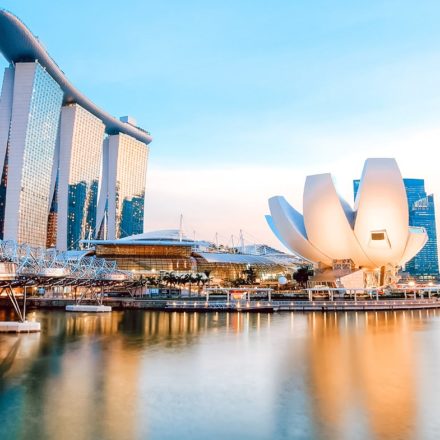This post is part of our series on Climate Change Disputes. Our earlier posts include: Climate Change Disputes 101: An Introduction, a post on Australia (currently, the second most popular jurisdiction for Climate Change Disputes), and a post on China Mainland. Stay tuned for more posts on this topic.
Introduction
As a low-lying island nation, Singapore is keenly aware of the consequences of climate change. Despite this, in contrast to Australia (as outlined here), Singapore has not seen a wave of climate change litigation and is unlikely to see one soon. What is more likely is increased scrutiny by regulators in Singapore of the compliance of corporations with environmental law and standards and increased commercial disputes related to climate change.
The Singapore Government and statutory authorities have actively implemented legislation, regulation and policies to address the emission of greenhouse gases. The Singapore Government has introduced legislation to address climate related risks such as the Carbon Pricing Act, the Energy Conservation Act, the Transboundary Haze Pollution Act and the Environmental Protection and Management Act. Compliance with environmental law is monitored and investigated by regulators. Directors who fail to account for climate change risks can in some cases incur personal liability unless they can show the offences were committed without their consent, connivance, or privity.
Why has Singapore not seen a raft of climate change litigation like jurisdictions such as Australia?
The key barriers to climate change litigation in Singapore are (1) the lack of an Environmental Impact Assessment (EIA) law in Singapore; and (2) the difficulty in bringing representative actions in the Singapore courts.
Climate change litigation in other jurisdictions such as Australia demonstrates that having EIA law or other similar regulatory regimes will provide avenues through which litigants may commence climate change litigation. Such an avenue is not available in Singapore as there are no laws requiring EIA for projects. The Singapore Government implements an informal administrative system and requires EIA for “projects that may most adversely impact our projected natural spaces, and coastal and marine environments”.
Further, whilst Singapore law allows for representative proceedings to be brought in the Singapore courts, the permission of the court is required for such action and all members of the class must be identified before the litigation commences, which is different from US-style class actions. The Singapore courts will also consider whether to permit the representative action based on the economical advantages of asserting and enforcing a claim collectively and the potential prejudice to the respondent. In such circumstances, representative actions remain very uncommon in Singapore.
Will regulatory initiatives in Singapore lead to environmental and climate change litigation?
In response to the transboundary haze situation in South-East Asia (SEA), Singapore introduced a unique legislative innovation to allow Singapore to prosecute companies that cause or contribute to haze pollution in Singapore even if it takes place in other countries, such as Indonesia. There have been multiple extensive haze events (including in 2013 and 2015) due to land clearing by burning in Indonesia that caused both health and economic damage across the region. Singapore introduced the Transboundary Haze Pollution Act in 2014 which creates extra-territorial civil and criminal liability for entities engaging in conduct or condoning conduct that causes or contributes to haze pollution in Singapore. The Act also catches entities that participate in the management or operational affairs or exercise control over the offending entity, thus targeting parent or holding companies of the companies undertaking the land clearing. Following the haze event in 2015, the National Environment Agency investigated six Indonesian businesses but to date none have been prosecuted. Another serious haze event could trigger prosecutions or civil suits by affected parties.
More recently, there has been an increasing focus by regulators in Singapore on corporations improving their management of environmental risks and reporting against sustainability standards:
- In 2020, the Monetary Authority of Singapore issued environmental risk management guidelines across the banking, insurance, and asset management The guidelines recommend that directors and senior management of financial institutions maintain oversight of their environmental risk management.
- The SGX is introducing climate reporting requirements on a ‘comply or explain’ basis for all listed companies from this year. From 2023, the issuers in the financial, energy, agricultural, food and forest products industries i.e., industries that are most affected by climate change, are required to report on all of the components in the sustainability report.
- A failure to disclose information relating to climate reporting may result in a fine on the company, and the director of the company may be fined or jailed if he or she had consented to or connived in the company’s failure to disclose. The failure could also theoretically give rise to a claim by an investor against the company if the failure to disclose or late disclosure effects the value of the securities.
Whilst climate reporting may provide an avenue for climate litigation brought by Singapore shareholders and activists, we are unlikely to see much climate litigation in relation to disclosures and breaches of directors’ duties in Singapore. This is for three key reasons: the difficulty in bringing representative actions in the Singapore courts; the smaller number of companies listed on the SGX and limited number of IPOs; and because there are fewer activist shareholders compared to Australia and other jurisdictions. Shareholders in Singapore are also generally non-litigious compared to other jurisdictions.
Is an increase in climate change arbitration likely?
More likely than being the theatre for climate change litigation, Singapore will be the seat for arbitrations related to renewables projects, carbon trading and other projects and transactions relating to sustainability:
- Investment treaty arbitrations: We may see more investment treaty claims in Asia that relate to Asian governments changing the parameters of their renewable programs and reducing the value of investments made in renewable projects. Singapore is an attractive seat for investment treaty arbitrations, involving investors or governments in Asia. Many investments in SEA are made through Singapore incorporated companies, such that treaty claims may be made under Singapore’s many Bilateral Investment Treaties, Free Trade Agreements and multilateral agreements.
- International commercial arbitrations: It is likely that we will see an increase in the number of commercial disputes coming out of renewable and other green infrastructure projects in the SEA region, the likely increase in carbon trading and the increase in sustainable finance and investments. In its recent budget, Singapore announced a large increase in its carbon tax from $5 per tonne now to $25 in 2024, $45 in 2026 and $50-80 in 2030. Companies can use high quality international carbon credits to offset up to 5% of their emissions from 2024 – this will push an increase in carbon trading and may lead to related disputes.
Which companies should pay attention to these developments?
While it is unlikely that Singapore will see public interest litigation relating to climate change, businesses in Singapore will face increasing regulatory oversight of their business practices in relation to climate change. This is particularly relevant to companies listed on the SGX or companies that have applied to be listed on the SGX which, depending on their sector, may be subject to mandatory climate reporting from 2023 onwards. Such companies will need to subject their sustainability reporting processes to internal review by their internal audit function, and all directors have to undergo training on sustainability. Failure to comply with the reporting requirements may result in sanctions against the company or any responsible director.
Companies who are involved in renewables projects, sustainable finance, sustainable investments and carbon trading in SEA should also pay attention to developments in climate change regulation such as Singapore’s increase in its carbon tax. It is likely that we will see more commercial disputes in Singapore coming out of the growing number of renewable and other green infrastructure projects in the SEA region, the likely increase in carbon trading and the increase in sustainable finance and investments. There could also potentially be an increased number of investment treaty claims as governments in Asia change the incentives for renewable projects.
Companies in the renewable energy space should also pay heed to Singapore’s efforts to strengthen collaboration with other jurisdictions on climate change issues. In February 2022, Singapore announced that it will aim to achieve net zero emissions by or around mid-century and has commenced negotiations with Australia over a bilateral Green Economy Agreement which will be a ground-breaking agreement that combines economic and environmental objectives. The aim of the Green Economy Agreement is to accelerate the adoption of low-carbon and green technology, and decarbonised production processes.








